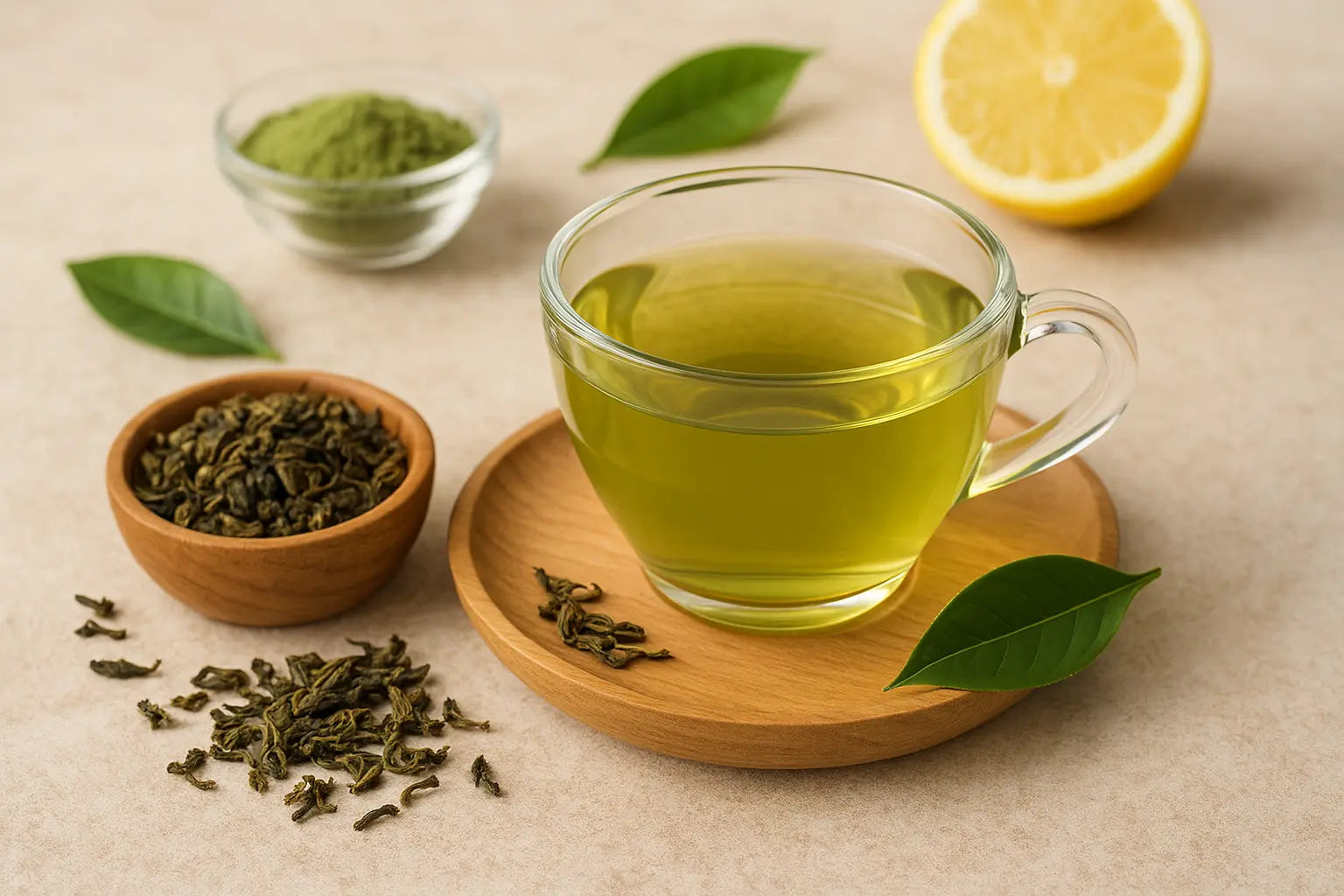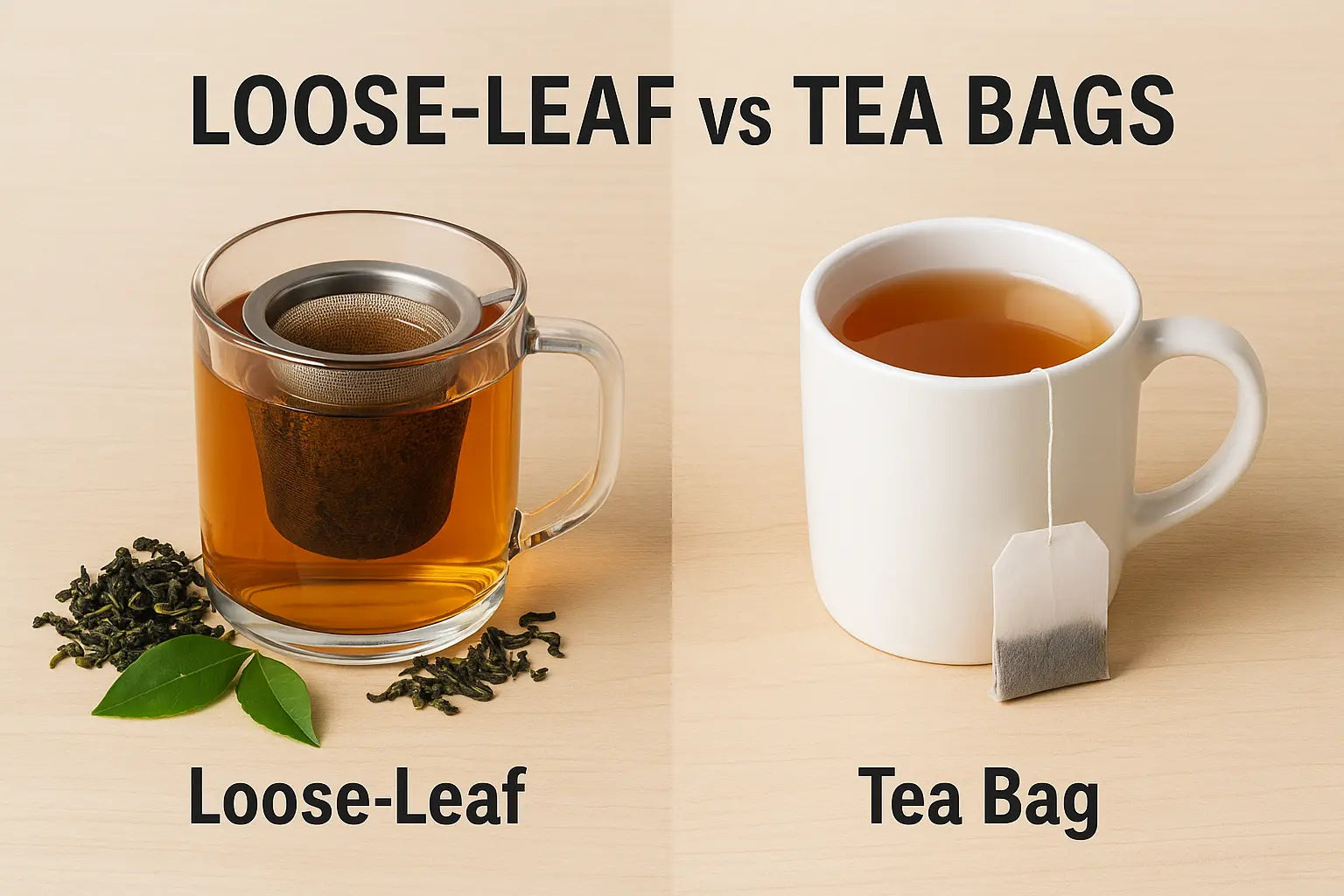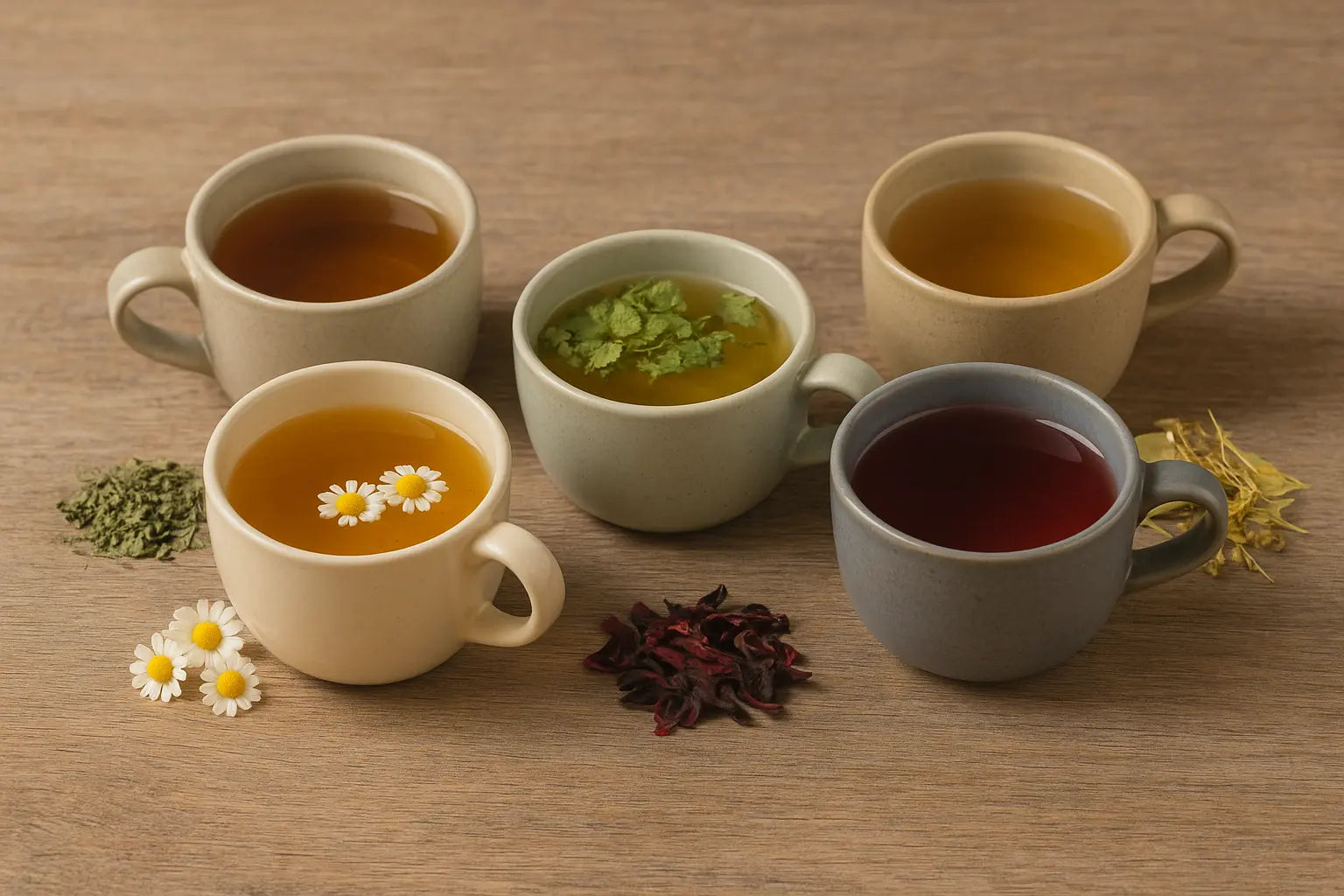
The Role of Green Tea in Gut Health & Digestion
When it comes to natural remedies for better digestion, few drinks are as celebrated as green tea. For centuries, it’s been valued in Asian cultures not only for its refreshing taste but also for its ability to promote overall health. In recent years, science has begun to catch up, showing us just how much green tea can benefit the gut.
If you’ve ever struggled with bloating, sluggish digestion, or just want to keep your microbiome in balance, adding green tea to your routine could be a game-changer. Let’s dive into how this ancient beverage supports your gut health and digestion.
Why Gut Health Matters
Your gut isn’t just about breaking down food — it’s home to trillions of microorganisms collectively known as the gut microbiome. These tiny allies help digest fiber, regulate immune function, and even influence mood through the gut-brain connection.
But when your gut is out of balance, problems like indigestion, bloating, constipation, or conditions like IBS (Irritable Bowel Syndrome) can arise. Diet is one of the most powerful tools for maintaining gut balance, and green tea is quickly becoming recognized as a simple, effective addition.
What’s Inside Green Tea That Helps the Gut?
Green tea isn’t just warm water with a hint of leaves. It’s packed with bioactive compounds that have proven benefits:
-
Catechins (EGCG): Potent antioxidants that reduce inflammation in the gut lining.
-
Polyphenols: Natural plant compounds that act like prebiotics, feeding beneficial bacteria.
-
L-theanine & caffeine: A unique combo that provides gentle stimulation without the crash.
-
Tannins: Astringent compounds that may soothe digestion in small amounts (though too much can irritate sensitive stomachs).
These compounds work together to support digestive health in subtle but powerful ways.
Green Tea’s Direct Role in Digestion
Here’s how sipping green tea can make digestion smoother:
-
Stimulates digestive enzymes: A warm cup of green tea can gently support the breakdown of food.
-
Reduces bloating: Green tea’s mild diuretic effect helps flush excess water and may ease stomach heaviness.
-
Balances acidity: By calming the stomach lining, green tea may prevent discomfort linked with acid reflux.
- Soothes the digestive tract: Thanks to its anti-inflammatory properties, it can help those prone to irritation.
Think of it as a digestive “reset button” that’s both natural and comforting.
Green Tea and the Microbiome
One of the most fascinating discoveries about green tea is its role in shaping the gut microbiome. The polyphenols in green tea act as nourishment for good bacteria like Lactobacillus and Bifidobacterium, which are essential for balanced digestion.
At the same time, studies suggest green tea can reduce harmful bacteria that trigger inflammation. This dual action — boosting the good while crowding out the bad — makes it a valuable ally for long-term gut health.
Extra Digestive Benefits
Beyond its direct effects on digestion, green tea supports related processes:
-
Weight management: By slightly increasing metabolism and supporting fat digestion, green tea may help with healthy weight balance — an important factor in gut health.
-
IBS and colitis: Early research shows green tea compounds may reduce gut inflammation, making it potentially beneficial for people with IBS or colitis.
-
Liver support: Since the liver works closely with the digestive system, green tea’s detoxifying properties offer additional digestive benefits.
How to Use Green Tea for Gut Health
If you’re curious about incorporating green tea into your daily routine, here are a few tips:
-
Best time to drink it: About 30–60 minutes after meals is ideal, helping digestion without interfering with nutrient absorption.
-
Daily amount: Two to three cups per day is plenty to reap the benefits.
-
Gentle brewing: Steep for 2–3 minutes. Over-brewing can release too many tannins, leading to bitterness and stomach upset.
-
Matcha option: Matcha provides the benefits of whole tea leaves in powdered form, delivering a higher concentration of polyphenols.
-
Cautions: People with caffeine sensitivity, iron absorption issues, or pregnant women should moderate intake or consult a healthcare professional.
Green Tea vs. Other Herbal Teas
Herbal teas like peppermint, chamomile, and ginger are well known for soothing digestion, peppermint relaxes muscles in the gut, chamomile calms inflammation, and ginger aids motility.
What makes green tea unique is its dual action: it not only calms and supports digestion but also actively reshapes the microbiome. This sets it apart as both a soothing and functional beverage.
Conclusion: A Simple Step Toward a Happier Gut
Green tea isn’t a magic bullet, but it’s one of the simplest, most enjoyable ways to support gut health daily. From balancing stomach acidity and easing bloating to nourishing beneficial gut bacteria, this ancient drink has earned its place in modern wellness routines.
If you’re ready to experience these benefits firsthand, try Green Tea by Leafbox. Sourced with care and crafted for both flavor and wellness, Leafbox ensures you’re sipping the highest quality leaves, giving your gut the support it deserves.
Your digestive system will thank you, one cup at a time.



